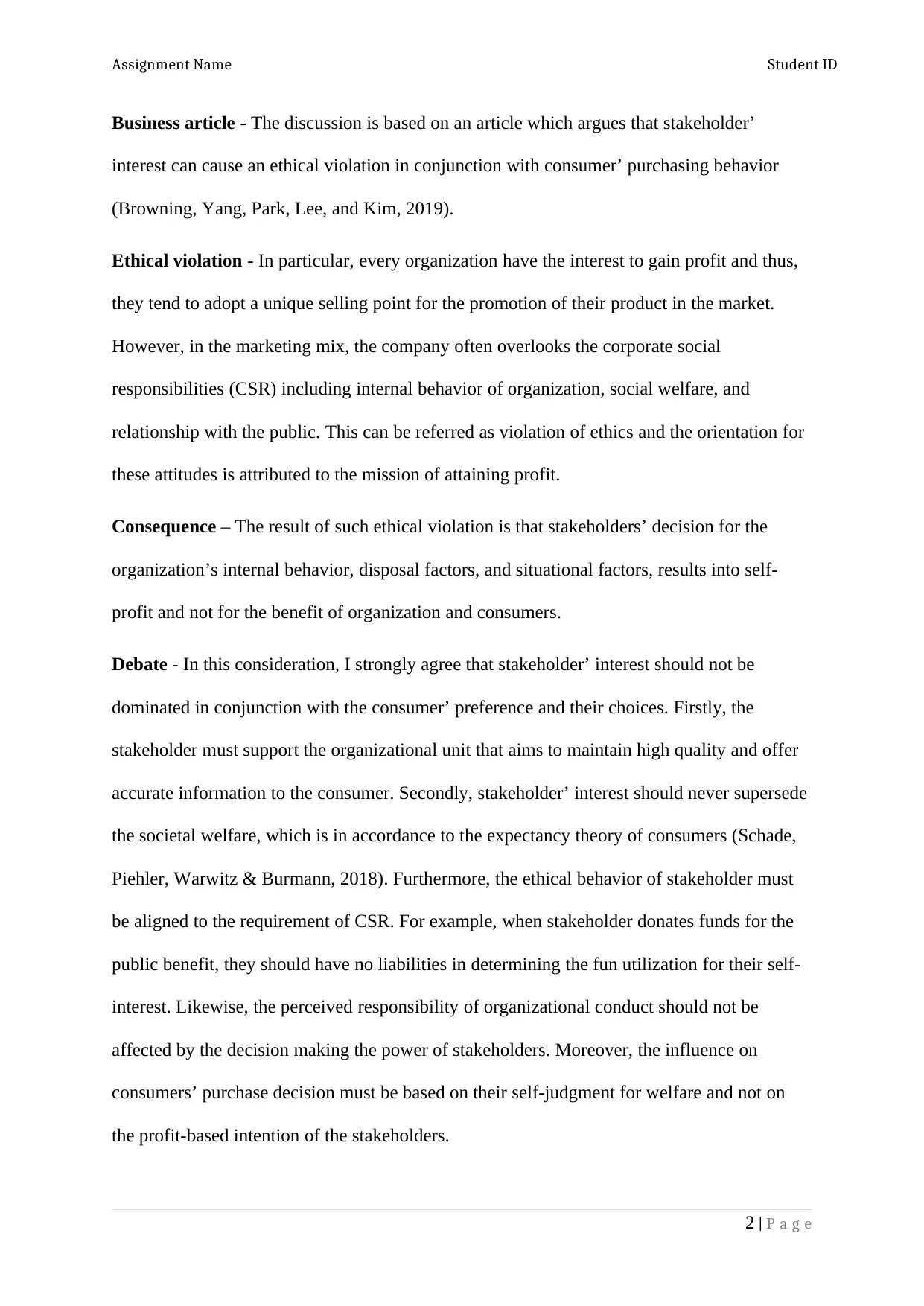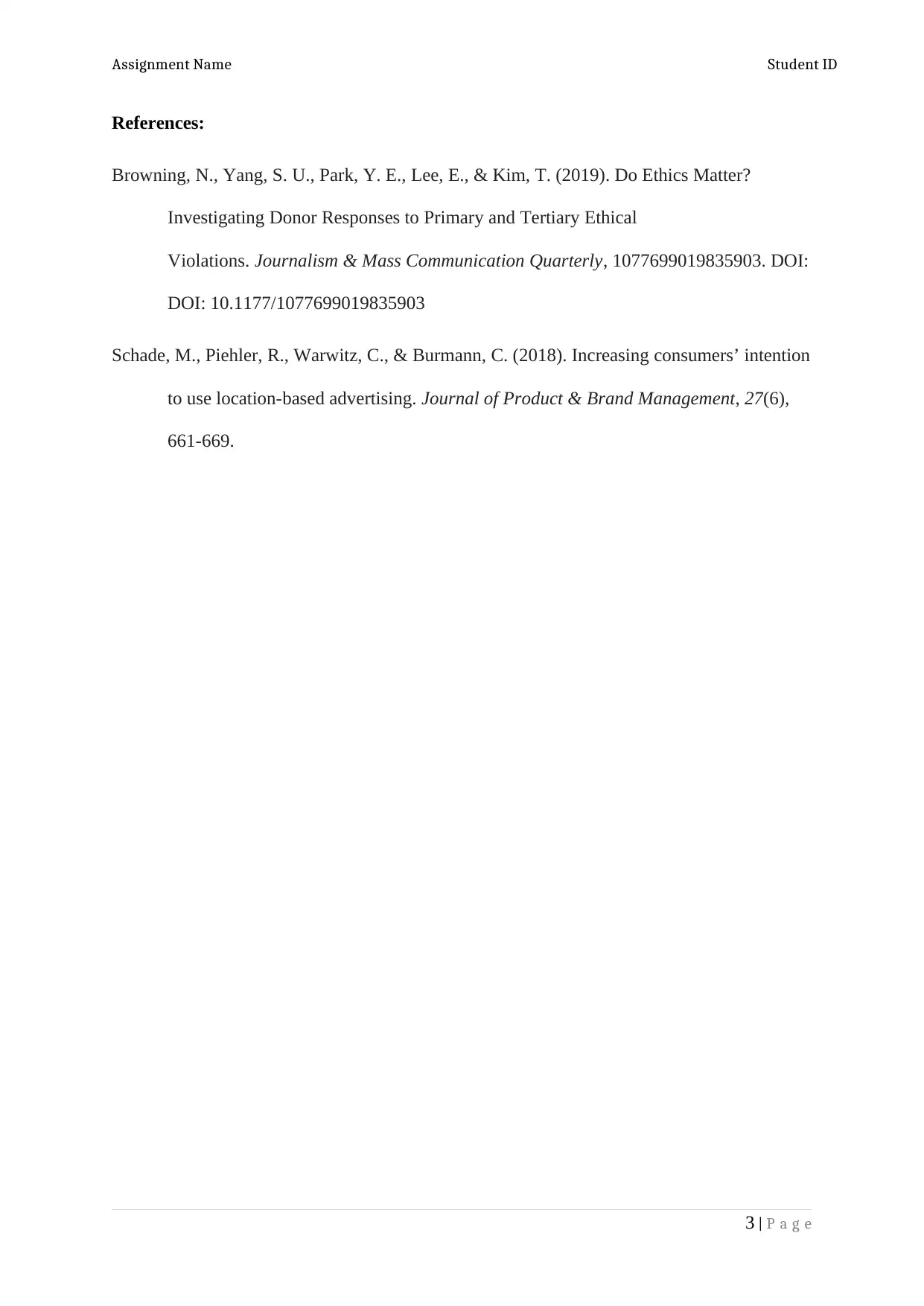Analysis of Stakeholder Influence and Ethical Violations in Business
VerifiedAdded on 2023/04/20
|3
|479
|413
Report
AI Summary
This report delves into the ethical implications of stakeholder influence on consumer behavior within a business context. It examines how the pursuit of profit by organizations, often through marketing strategies, can lead to ethical violations, particularly in relation to corporate social responsibility (CSR). The report argues that stakeholder interests should not supersede consumer welfare and ethical conduct. It emphasizes the importance of high-quality information, societal well-being, and ethical alignment with CSR principles. Furthermore, the report stresses the need for consumer self-judgment in purchase decisions, independent of stakeholder profit motives, advocating for ethical decision-making and responsible business practices.
1 out of 3





![[object Object]](/_next/static/media/star-bottom.7253800d.svg)